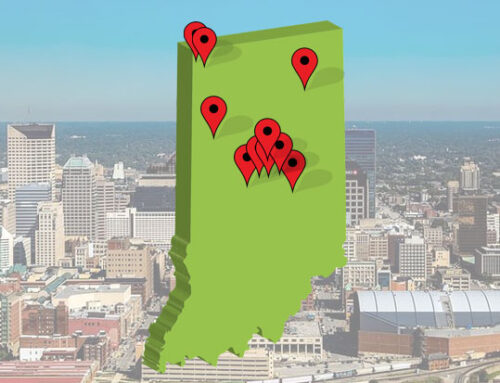I. Contingency Fees
I have represented individuals seriously injured in personal injury accidents for over 35 years. We have a guarantee in our office that those people we represent do not have to pay us a fee if we do not recover for them. This is known as a “contingency fee arrangement”. Contingent fees are appropriate and ethical in personal injury cases in Indiana. However contingent fees or percentage fees are restricted in other cases such as divorce, criminal and certain kinds of family law cases. In most United States jurisdictions there are requirements that contingency fees be “reasonable”, resulting in a typical contingency fee of 33% to 45% in injury cases of any recovery. Most lawyers believe it is inappropriate for the attorney to receive more money than the client “nets” as a result of any settlement or verdict. Insurance studies confirm injured parties represented by personal injury attorneys received 2 to 3 times more than those representing themselves.
II. Why Are Contingent Fees a Good Thing?
The proponents of such a fee structure argue that contingent fees make it easier for the poor to pursue their civil rights. Other fee structures can be expensive, particularly in the more severe and complex cases. A contingency fee arrangement provides access to the Courts for those who cannot afford to pay attorney’s fees and provide the costs of civil litigation because most injury lawyers advance and pay. Such a fee structure also is a strong motivation for the attorney to work diligently on a case for his or her client. Having your lawyer working on a contingent basis is known to reduce what has notoriously been called “frivolous lawsuits”. No lawyer would want to pursue a claim where there is no chance of recovery which is the definition of frivolous; i.e., a case without merit. So contrary to popular current “thought” (primarily presented by insurance companies) contingency fees serve a social purpose! Contingent fee lawyers screen the cases saving the court system and everybody else the trouble of determining whether or not a case is “frivolous”. Obviously if a lawyer is paid by the hour he doesn’t have as much incentive to screen the cases in advance of filing suit. So use of contingency fees is a good thing!
A prospective client should find out what happens with the costs related to pursuing a case when the case is lost; i.e. court fees, witness depositions, copying charges and the like. In many States you remain legally responsible for these costs whether your lawyer requires you to pay them or not. In most cases that are not successful the law office will “write off” these expenses without charge to you. When successful, costs will be deducted from the client’s share of the recovery upon conclusion of the case.
III. How is Fee Determined?
Often the percentage to be charged on a personal injury contingent fee case depends on the type of case and its complexity. For example, in automobile cases a contingency fee of 1/3 of the recovery is common. However in more complex litigation, like a defective product case, the fee is often a higher percentage. This is because the case consumes greater amounts of attorney time, resources and costs. Additionally the difficulty of recovery is usually greater, and thus the risk of failure is also higher.
You can be sure that an attorney who is accepting a personal injury case on a contingency fee basis will carefully review the elements of the claim before accepting responsibility for it. It is important that you thoroughly explain everything related to your case to the attorney so that he or she may properly evaluate the claim before pursuing it. Certainly one of the issues that we review is the extent that you’ve been injured. Lawsuits can be expensive and the attorney does not want to be put in the position where the expenses of the case would be greater or equal to your eventual recovery. In both personal injury and employment cases it is important that the seriously injured or damaged person take prompt medical action toward as full a recovery as possible.

Yes, contingency fee agreements are possible in employment cases. At the law office of Bill Hurst we understand your needs and accordingly, offer a variety of fee options. Given the nature of employment law cases however, we typically enter into a hybrid agreement which requires the payment of a retainer fee of a specified amount (to be agreed upon) to be earned by the attorney performing services. If the time expended by the attorney exceeds the amount of the retailer, the matter proceeds under a contingency fee arrangement. If there is a recovery, the retainer is repaid to the client from any amount recovered under the firm’s portion of the contingency fee agreement. All unearned retainer fees are returned.
V. What If a Lawyer Won’t Take My Case?
Often the question becomes “what should I do if the attorney won’t take my case?”. Most contingency fee lawyers will not accept a case if it has a value of less than $6,000. Currently in Marion County the Small Claims Court can accept cases with a value up to $6,000. Generally no attorneys will be involved in such a case, you will represent yourself and the party you sue may represent himself/herself. These are low cost dispute resolution services. The Small Claims Court will instruct you and guide you through the legal process.
VI. Why Should I Hire a Lawyer?
An experienced lawyer knows how to prepare and build a case. He/she will have experience in negotiating with insurance companies and will know how to proceed. The lawyer will also be able to determine if it is necessary go to trial. Certainly you can negotiate your own claim with an insurance company but the claims adjustor typically will do everything he/she can to reach the lowest possible settlement with you. At the same time the adjustor will attempt to elicit information from you that may damage your position ultimately. Frankly, once a client has gone through the stages of self-negotiation, lawyers often will not take the case because of what the potential client has done or failed to do in attempting to settle his or her case.
VII. Costs
Contingent fees do not cover litigation expenses which are costs that are paid out of pocket by an attorney for filing fees, court reports, expert witnesses, etc. Once you get a financial recovery you should have enough money to pay those fees out of your share of the recovery. In over 35 years we have never charged anything to a client for fees or costs unless we are successful in resolving the case, otherwise we simply will have to absorb the litigation expenses as a business cost.
VIII. Call Us and See Us for a Free Consultation
At the law office of William Hurst virtually all of our personal injury cases are taken on a contingent fee basis and most of our employment cases involve a contingent fee. Before we are hired you will be given an example of a typical settlement and how the fee structure, costs and expenses are handled. Call our office at 1(800)636-0808 for a free consultation. Español!
Sources:
https://www.americanbar.org/publiceducation/resources/lawissuesforconsumers/lawyer feescontingent.html
https://en.wikipedia.org/wiki/contingent_fee





